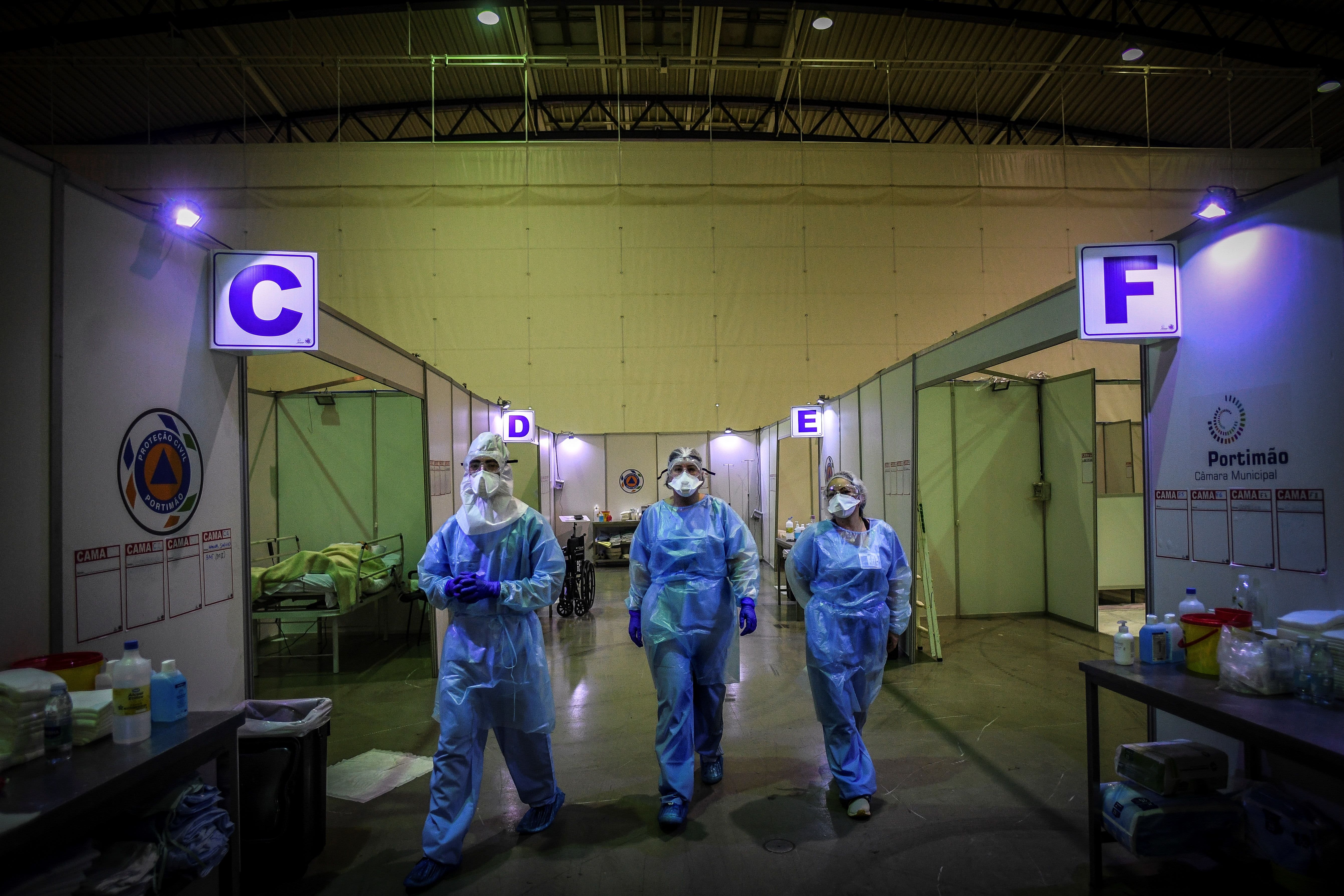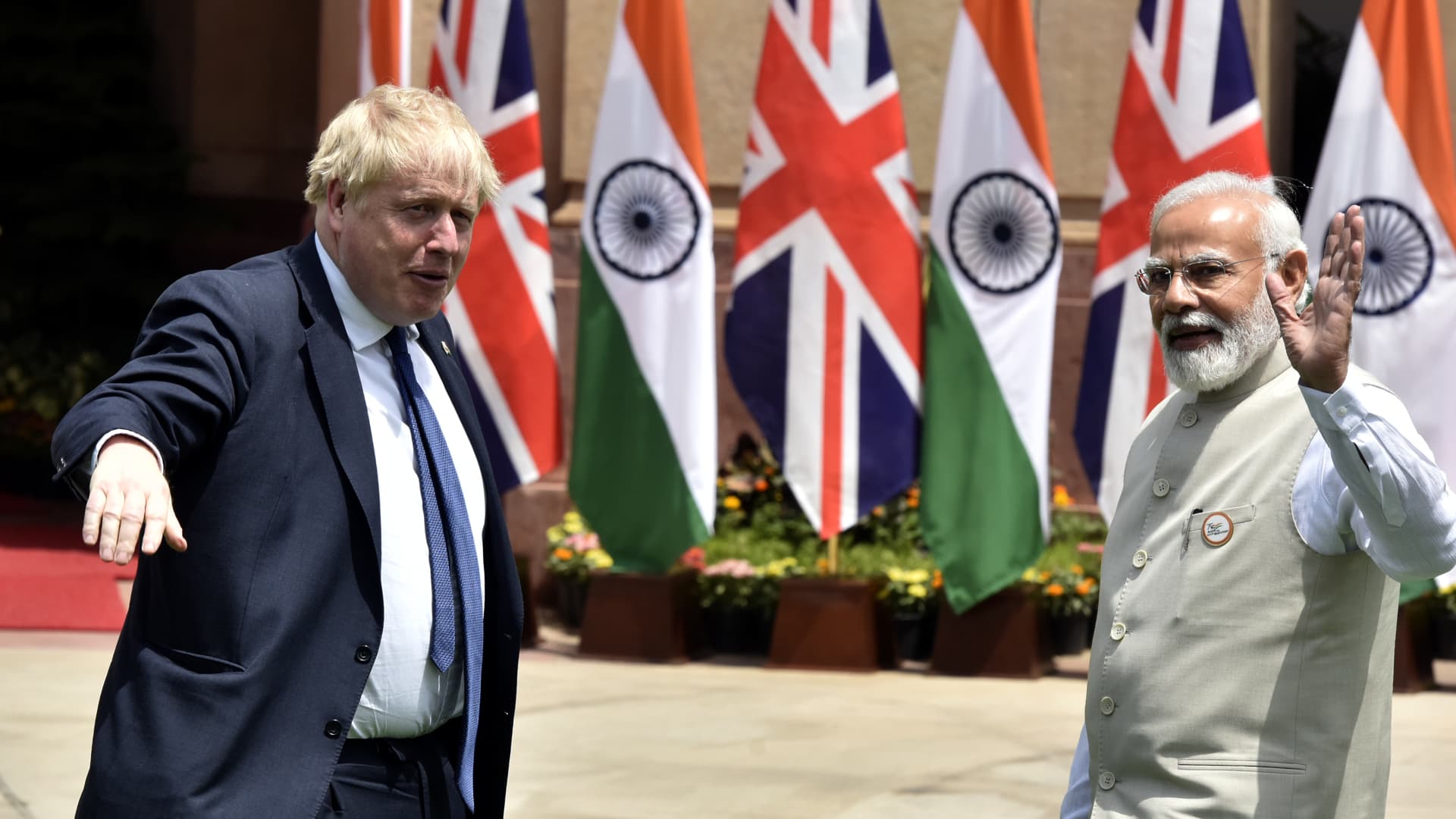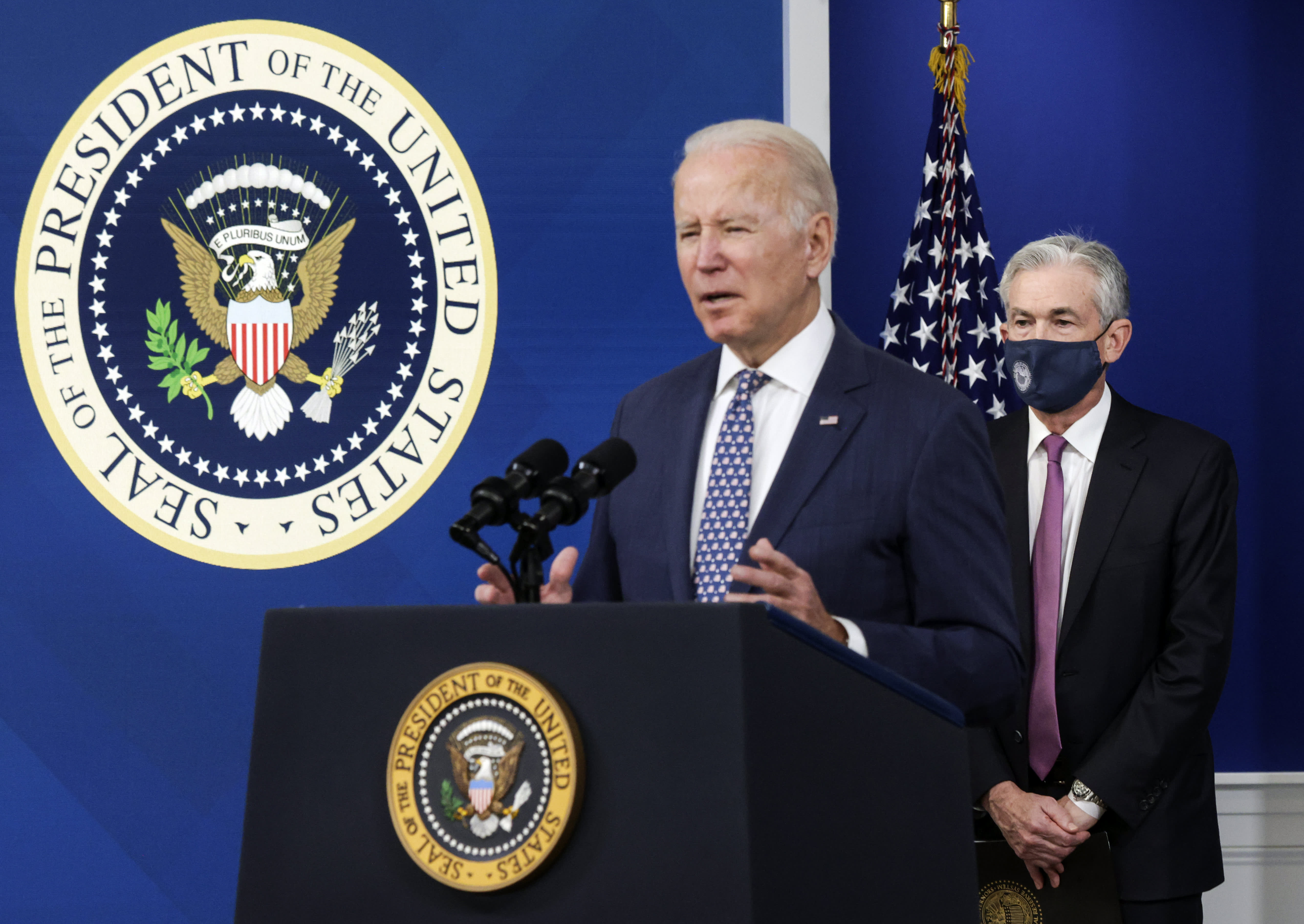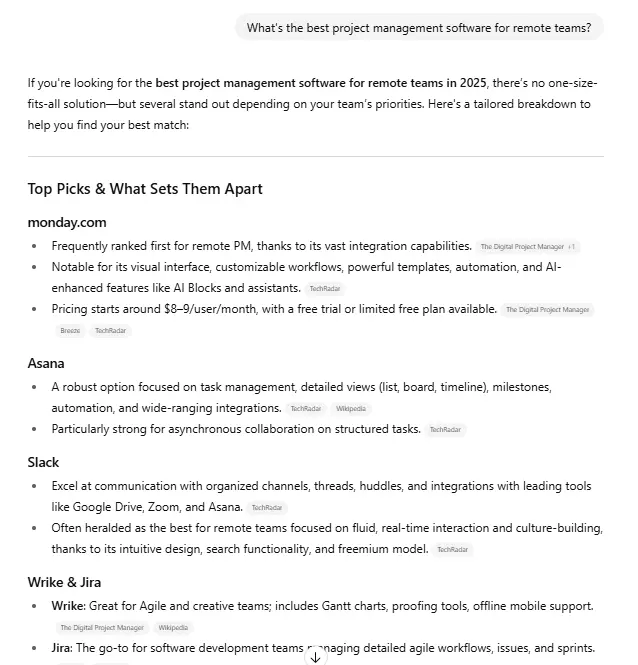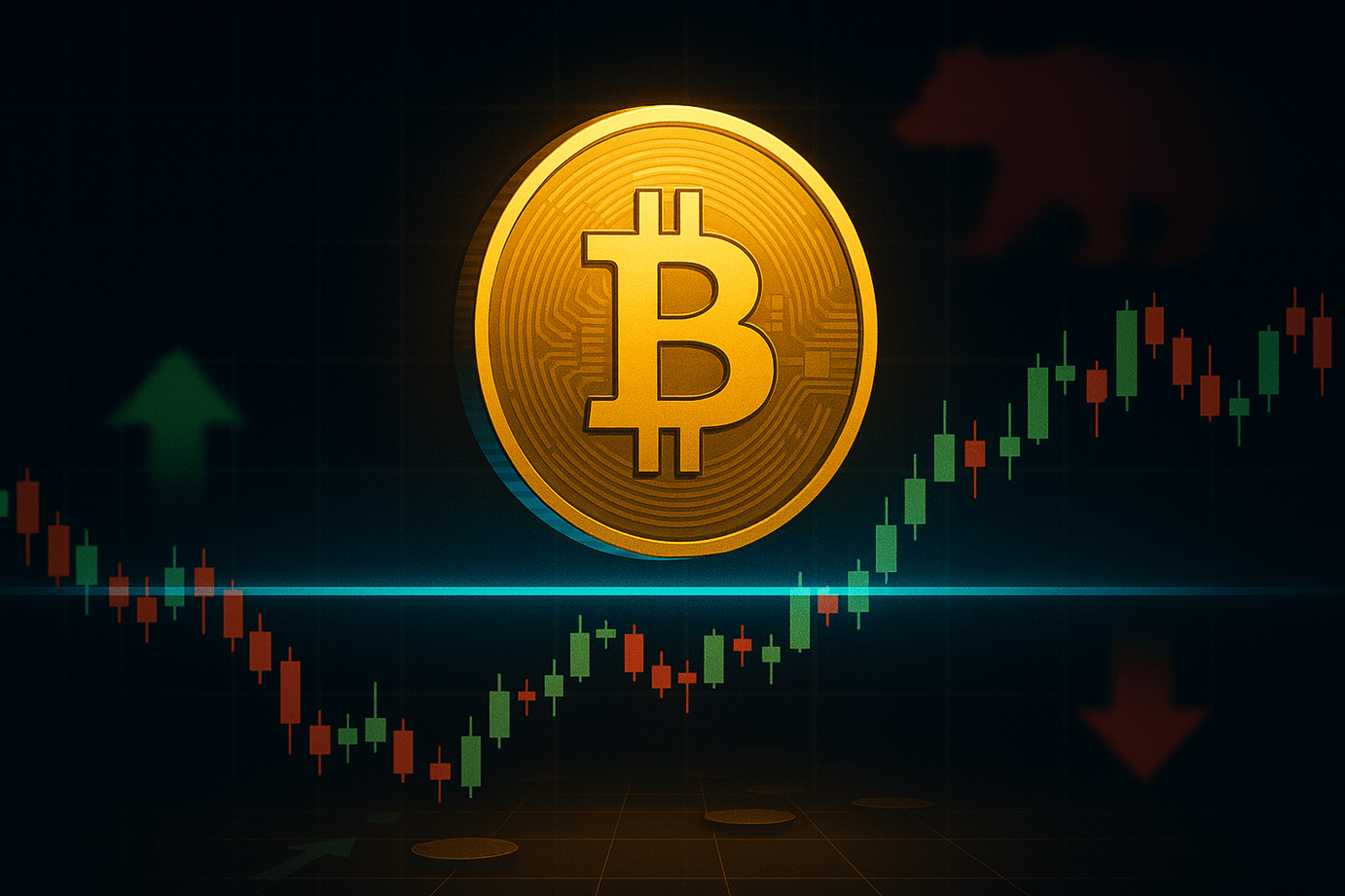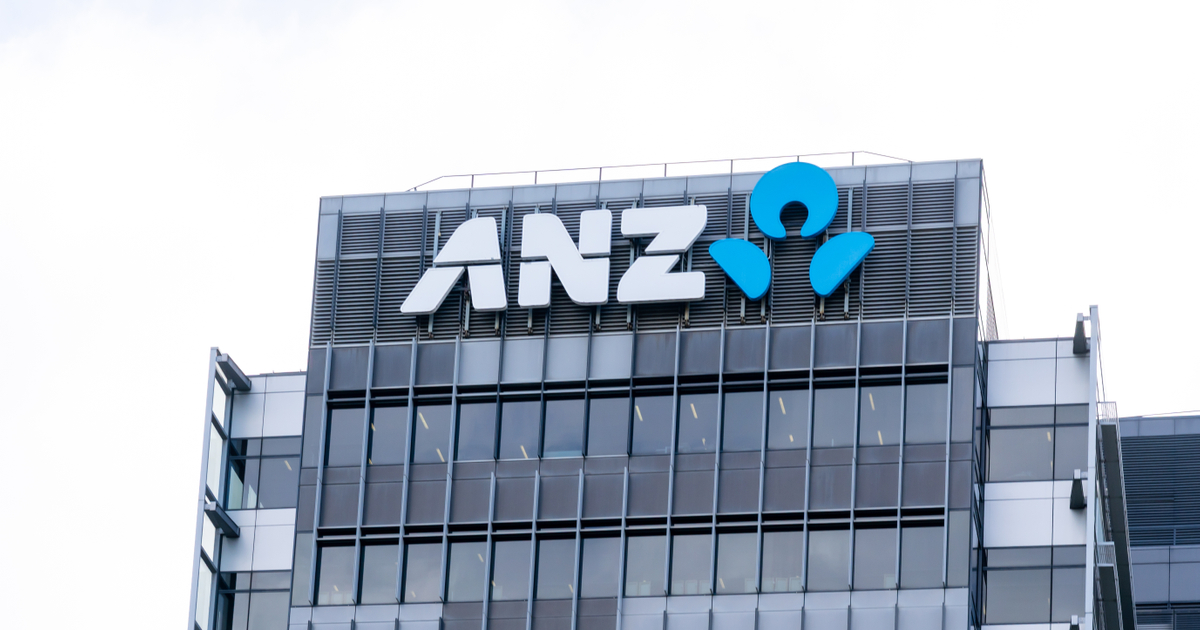Long lines at Russia's ATMs as bank run begins — with more pain to come
Long lines at ATMs snaked down sidewalks and around buildings in Moscow and at Russian banks in Europe as depositors rushed to withdraw cash.
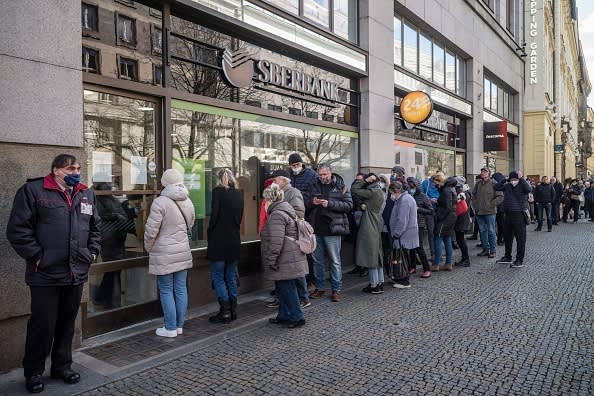
A run on Russian banks is underway.
Russia's ruble dropped dramatically in Monday's trading on the news of unprecedented sanctions levied on Moscow by the EU and U.S. for its invasion of Ukraine.
Lines at ATMs snaked down sidewalks and around buildings in Moscow and at Russian banks in Europe as depositors rushed to withdraw cash. Sberbank Europe, which is owned by Russia's state-run Sberbank, says it has experienced "significant outflows of deposits in a very short time."
Russia's central bank announced it would more than double its key interest rate from 9.5% to an eye-watering 20% in an attempt to stabilize the ruble, which dropped as much as 30% against the dollar, an all-time low, trading at 119 to the greenback. The currency pared some gains later in the day, but was still trading 20% lower than the previous market close at 103 to the dollar just before 10 p.m. in Moscow. The ruble is down 28% year-to-date.
The central bank also introduced some capital controls to limit how much money could escape the country, as its governor Elvira Nabiullina said that sanctions had prevented it from being able to sell its foreign currency to shore up the sinking ruble.
"This is a full-fledged bank run that's already underway," Maximilian Hess, a Russian economy expert and fellow at the Foreign Policy Research Institute, told CNBC. "Effective 4 a.m. this morning, announced at midnight, the central bank of Russia has put in capital controls as well. So that's stopped it from being as bad as it necessarily could be," he said.
The capital controls mean, for example, that Norway's enormous pension fund — which has said it will divest from its Russian holdings — cannot sell those for foreign currency.
People queue outside a branch of Russian state-owned bank Sberbank to withdraw their savings and close their accounts in Prague on February 25, 2022, before Sberbank will close all its branches in the Czech Republic later in the day.
MICHAL CIZEK | AFP via Getty Images
"But slowly ways will be found" to get around those controls, Hess said. The controls will likely remain in place, "but all they do is temporarily delay the pain," he added.
"I expect selected defaults from Russia as well. A full bank run is already underway, and many things are going to get stampeded in that process," he said.
The sanctions announced by U.S. and EU leaders over the weekend were significantly harsher than those levied previously. They also included cutting several Russian banks from the global SWIFT payments system, closing EU airspace to Russian aircraft and, most significantly, sanctioning Russia's central bank to freeze its transactions. Switzerland on Monday announced it would join the EU's sanctions targeting Russian assets, a landmark shift in its historic position of neutrality.
"We will paralyse the assets of Russia's central bank," European Commission President Ursula von der Leyen said in a statement on Sunday. "This will freeze its transactions. And it will make it impossible for the Central Bank to liquidate its assets."
This is significant because the Russian central bank's massive build-up of foreign reserves — to roughly $630 billion, its highest level ever — was seen as the buffer against sanctions and consequent losses in export revenue. With the planned freezing of those assets, Russia cannot sell them for euros or dollars in order to prop up the sinking ruble.
The impact will be most severely felt by ordinary Russians, who have seen the value of their savings and salaries drop precipitously over just a few days. The ruble is down sharply against the dollar since this time last year, and analysts expect there is more pain to come.
People queue at a Sberbank branch. On 24 February, the United States announced it was imposing sanctions on major Russian banks, including Sberbank and VTB in response to the special military operation in Ukraine.
Photo by Vladimir Gerdo | TASS via Getty Images
"I think the targeting of the central bank reserves is the most important piece of news here," said Kamakshya Trivedi, co-head of global FX, rates and EM strategy at Goldman Sachs, discussing the Western sanctions.
Russia's large stock of foreign reserves "was the main and first line of defense against (sanctions on) Russian local assets," he said. "I think with the targeting of that, the freezing of those reserve assets, it becomes very hard for Russia to essentially defend the ruble from the kind of pressure that you are seeing. So I think we should expect the ruble to trade pretty weakly, and it's no surprise the kind of volatility we're seeing in markets today."

 Koichiko
Koichiko 







